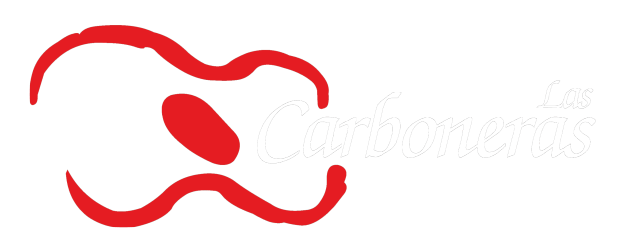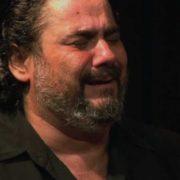Juañares
Born in Jerez de la Frontera (Cádiz) in 1967, Juañares is trained in singing in his family, which has given great artists of the likes of Terremoto, Los Sordera, Los Carrasco and Los Monje, and then he has perfected with the best artists of Jerez and Madrid. He culminates his training in some of the best Spanish tablaos such as Zambra, Café de Chinitas, Casa Patas, Corral de la Morería, El Cordobés, among many others. From there he makes the leap to the great flamenco companies and to cante recitals.

He collaborates with the company of Joaquín Cortés in shows such as “Zibayi”, “Pasión gitana 1 y 2”, “Live”, “Mi soledad” and “Soul” (as cantaor and composer); Company of Antonio Canales in shows like “A ti, Carmen”, “Casa de Bernarda Alba”, “Torero”, “La Cenicienta” (as cantaor and composer); Company of Sara Baras in shows such as “Sensaciones”, “Juana la Loca”, “Tríptico” (as cantaor and composer); Company of Antonio Gades in shows such as “Bodas de sangre”, “Suite flamenca”, “Carmen”, “Fuenteovejuna”, “Fuego”.
In addition, he shares the stage in a multitude of shows and festivals with artists of the caliber of Manuela Carrasco, El Güito, Manolete, Juana Maya, Javier Barón, Joaquin Grilo, Domingo Ortega, Farruquito, Belén Maya, Cristóbal Reyes, Rafael Amargo, María Juncal, etc.
Performing flamenco recitals as a soloist he has sung in flamenco peñas such as Los Cernícalos, together with Terremoto, Sordera or Tío José de Paula; La Platería (Granada); in cultural centers of Salamanca, Ávila or Madrid. He is a regular cantaor of Tablao Las Carboneras (Madrid).
In the discographic aspect, he publishes his first album in 2003, entitled “Juañares”; he performs collaborations in Ketama albums, Niña Pastori, Navajita Plateá, Diego El Cigala, Chanson Flamenca, Tomate, Juan Habichuela, among others.
As a composer he gives his songs to artists such as Los Chichos, Ketama, Remedios Amaya, Navajita Plateá, Vicente Soto, Enrique El Extremeño, Celia Flores, Chonchi Heredia, among others.
First prize for bulerías of Jerez awarded by the prestigious Peña de Tío José de Paula.
«Every artist has to pass through the tablao, Camarón has passed and the biggest ones too»
«I’m from Jerez, I’ve been in Madrid for 31 years, I came here as a kid. I started playing the guitar. My training as a little kid was thanks to my family, who are Fernando Terremoto, Vicente Soto, Manuel Sordera, José Soto, José Mercé, that’s what I’ve swallowed. As a singer I have always liked Manuel Torre, Caracol, as well as the great artists of my family. When I started as a guitarist, I came to accompany El Grilo, my dad told me that in order to play the guitar well I had to study a lot and that I better would become cantaor, that as a guitarist I was not going to get there. I was very lazy and I preferred to find out what cantes and those things are. And, of course, I listened to him and started singing and there I had my first training. But my genes come from the Sordera, the Soto, Fernando Terremoto, that’s where everything I learned comes from.
»When I arrived in Madrid, I was with El Güito or Cristóbal Reyes. I went to Zambra, the tablao where I met Joaquín Cortés and I went on tour with him, and also with Antonio Canales or Manuela Carrasco, who is my cousin. I spent many years with Canales and Joaquín, with whom I was working with Jennifer López in New York. The last thing I have done is with the company of Antonio Gades, which helped me a lot to know what the staging is, the lights, know how to place myself under the zenith, those things. With Gades I exploited my facet as an actor, knowing how to develop on a stage, know how to act, which is something that I have much in mind since then. I have learned from the greatest, you could say. I met Carlos Saura also, who is a film director, and I have learned a lot from that.
»Among the first tablaos I was in, one of the most important for me was Las Carboneras, and there I learned a lot. Every artist has to pass through the tablao, Camarón and the bigger ones have passed. The tablao, which is where I am now, is one of the things that most satisfy me, because it is something that is for you, inside, that you stay with that, and it is one of the things that are filling me
more at this time of my life.
»For me tablao is the essence, everyone has to go through a tablao to know what it is. For me, it is where you enjoy the most, where you become the most, where you can best resolve, singing to the dancers. It is sung without rehearsing, everything comes out of inspiration, instinct and in a natural way. Now, it’s what I like the most, where I’m learning the most. Everyone has to go through there, in a tablao.»






